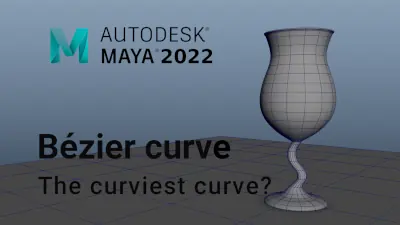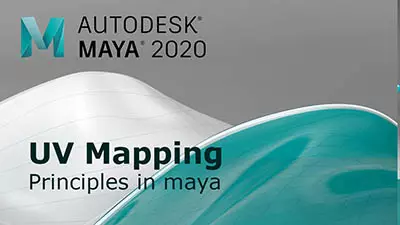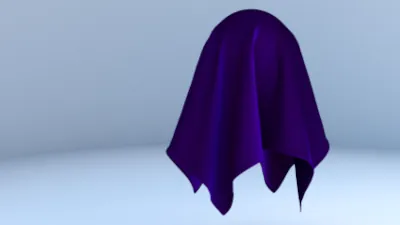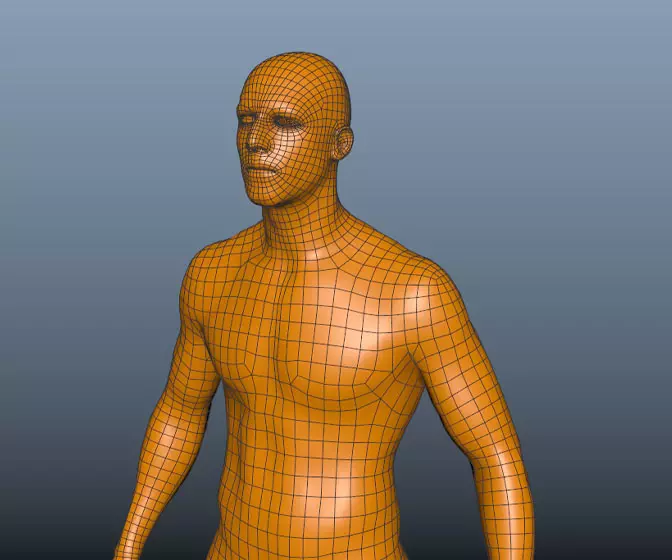Digital humans the art of the digital double
Ever wanted to know how digital doubles are created in the movie industry? This course will give you an insight into how it's done.
#
1
13-01-2003
, 03:26 AM
find object's material via mel
Thanks.
Last edited by dannyngan; 13-01-2003 at 03:40 AM.
#
2
13-01-2003
, 05:37 AM
#
3
13-01-2003
, 05:51 AM
listConnections -type shadingEngine nurbsSphereShape1
Once you have the shading group names, you can figure out from that what materials are assigned, by listing objects that are connected to the shading group's surfaceShader, displacementShader, and volumeShader attributes. Usually the surface shader is the one you're most concerned with, so let's just look at that:
For this code snippet, I'll assume that you've selected the object you're curious about AND that it only has one material assigned to the entire object:
proc string getSurfaceShader (string $objName) {
// This assumes you want ONLY the shape node at the selected level of the
// hierarchy, for the object whose transform name is passed in as the argument.
string $myShapeNode[] = `listRelatives -children -shapes $objName`;
string $mySGs[] = `listConnections -type shadingEngine $myShapeNode[0]`;
string $surfaceShader[] = `listConnections ($mySGs[0] + ".surfaceShader")`;
return $surfaceShader[0];
}
So, to see the surface shader on nurbsSphere1, type
getSurfaceShader("nurbsSphere1");
This isn't a general solution because different components of an object (such as individual polys in a mesh object) can have different shading groups assigned, and this would only give you the shader for the first one. Also, if for some reason you have multiple shapes under one transform (weird, but could happen) this will only give you one of their surface shaders.
-- Mark
#
4
13-01-2003
, 05:52 AM
(now that I think about it there's probably a command that's a shortcut for this but I'm not sure I know it off the top of my head...)
-- Mark
#
5
13-01-2003
, 06:05 AM
Last edited by Darkware; 13-01-2003 at 06:13 AM.
#
6
13-01-2003
, 06:09 AM
-- Mark
#
7
13-01-2003
, 06:10 AM
-- Mark
#
8
13-01-2003
, 06:57 AM
Mark, thanks for the suggestion. AFAIK, that's the one of the simplest ways to get the shader from an object. But, as you said, that's only for shapes with a single shader. I am looking for way to do this at the face level for shapes with multiple shaders applied.
This is what I've found so far:
https://www.ewertb.com/maya/mel/mel_a43.html
Doesn't look too complex, just a bit convoluted. I'll dig into it some more tomorrow night when I have the brain power to do it.
For those of you who are curious (other than Mark
 ), I'm writing a series of scripts to help me with my UV mapping process. My method of UV unwrapping is very similar to Craig Daughtry's (see his VIP tutorial) and is actually something I was doing in 3ds max long before I moved over to Maya. What I do is create several shaders with random colors and then visually plan out my UV shells by applying different shaders to face selections. Once I have all my faces assigned with shaders, I'll go through and planar project best fit on each of the "patches".
), I'm writing a series of scripts to help me with my UV mapping process. My method of UV unwrapping is very similar to Craig Daughtry's (see his VIP tutorial) and is actually something I was doing in 3ds max long before I moved over to Maya. What I do is create several shaders with random colors and then visually plan out my UV shells by applying different shaders to face selections. Once I have all my faces assigned with shaders, I'll go through and planar project best fit on each of the "patches".Here's what my mesh looks like when I'm assigning materials:

At the moment, I have a script that will automatically apply the planar projections and layout the resulting shells, but that script depends on specific shader names (I have another script that generates a user-defined number of shaders that are named correctly). I'd like to make the script a little more flexible by not relying on specific shader names. Basically, I want to generate an array of all shaders that are applied to a particular shape and then use that list of shaders to run my script.
Another thing I'd like to do is create a HUD element that displays the shader of the currently selected face. This is mostly to help me in my shell planning phase. It starts getting a bit crazy when I have 50+ shaders applied to my model, and I have to change shader assignments to just one face.
Anyhow, this is the moderately long answer for why I started this thread. Any help you guys can offer would be greatly appreciated.
#
9
13-01-2003
, 11:39 AM

Thanks for wasting your time reading this line.
#
10
14-01-2003
, 12:11 AM

I think it's even better that Mark is on the forums now. He definitely knows a heck of a lot more about MEL than I do. I mean, he wrote a book on it!
#
11
14-01-2003
, 03:22 AM

-- Mark
#
12
14-01-2003
, 03:58 AM

Anyhow, I did some more searching around the web and found this on Highend3D:
https://www.highend3d.com/maya/mel/?s...=rendering#948
The script seems to work fine as long as I strip out the section that tries to open a HyperShade window (line begins "if ($foundShaders)"). It's probably the way the author has the script written -- I get an error everytime the script hits that conditional statement. The main part of the script, however, returns the .outColor attribute name for any shader that is assigned to the selected faces (works for multiple faces and shaders). As it is right now, it'll work for what I need. I'll probably end up tweaking the script to do what I want. Ah, the joys of MEL...
Last edited by dannyngan; 14-01-2003 at 04:01 AM.
Posting Rules Forum Rules
Similar Threads
Objects move inconsistently when I move multiple
by MrSandman in forum Maya Technical Issues replies 7 on 26-12-2021
Selecting objects by name?
by timmons64 in forum Maya Basics & Newbie Lounge replies 9 on 12-11-2018
Some objects darker? (problem)
by Craftdragon in forum Lighting & Rendering replies 1 on 28-04-2016
objects missing from outliner
by Dpotato in forum Maya Technical Issues replies 4 on 07-12-2015
Making objects out of other objects
by Clod in forum Maya Basics & Newbie Lounge replies 3 on 11-01-2004
Topics
Free Courses
Full Courses
VFX News
How computer animation was used 30 years ago to make a Roger Rabbit short
On 2022-07-18 14:30:13
Sneak peek at Houdini 19.5
On 2022-07-18 14:17:59
VFX Breakdown The Man Who Fell To Earth
On 2022-07-15 13:14:36
Resident Evil - Teaser Trailer
On 2022-05-13 13:52:25
New cloud modeling nodes for Bifrost
On 2022-05-02 20:24:13
MPC Showreel 2022
On 2022-04-13 16:02:13










